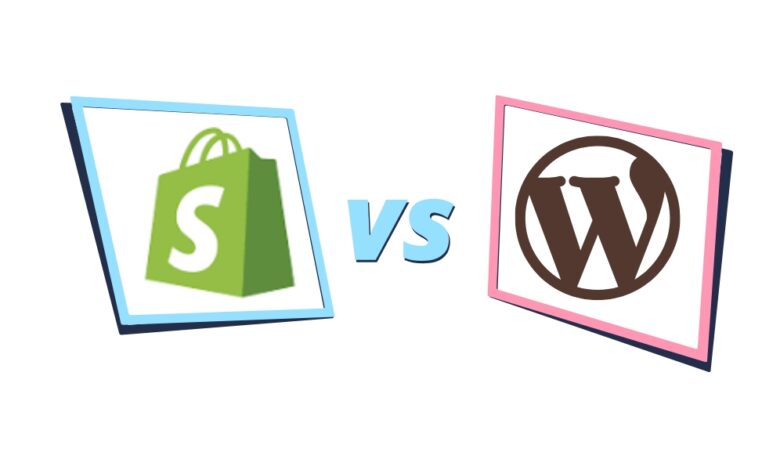Shopify vs WordPress for e-commerce in 2025

Are you excited to start your web store? You got everything to start, including the products, passion, and the perfect name, but you are stuck with the confusion, whether to use Shopify or WordPress. Before scrutinizing deeply, let’s explain what these two are.
Shopify is a comprehensive online store builder. You only need to choose a template, add goods, and sell, it takes care of hosting, payments, and design. Simple but less adaptable.
The website builder WordPress is free. It is all about a plugin that is used to sell products online. More adaptable, but requires setup like security, hosting, etc., it is always a better option for tech-savvy users.
How to choose between Shopify vs WordPress for e-commerce in 2025
1. Ease of Use and Accessibility
- Shopify is an all-in-one platform designed for e-commerce, offering a user-friendly interface, engaging interface, and built-in payment processing. It is the ideal choice for beginners due to its accessibility. For future entrepreneurs who want to launch a hassle-free online store without dealing with technical setup.
- WordPress offers more control but more effort to set up and maintain. It doesn’t include hosting, so users must choose a web hosting provider and install WordPress themselves. The free WooCommerce plugin allows more flexibility in design and functionality, but also requires responsibility and accountability in the case of updates, security, backups, including performance optimization of the website.
2. Customization and design
- Shopify:
- It offers a user-friendly interface along with professional themes.
- Allows quick store launch and design without expertise.
- Limitations include a need for knowledge of Shopify’s Liquid coding language or hiring a developer.
- It has the provision for premium apps eventually increases the expenses.
- WordPress:
- It has ample unlimited design freedom.
- Allows modification of the site’s appearance and functionality through HTML, CSS, and PHP.
- WordPress offers a vast plugin option for almost any feature.
- It requires more hands-on management, including theme updates and plugin conflicts.
Choosing between the two depends on the individuality and priority needs. Shopify offers speed and simplicity at the cost of creative control but whereas WordPress offers complete design autonomy.
3. Scalability and Performance
- Shopify: Shopify automatically expands with your business. Like a store that magically expands when it is crowded, you don’t need to lift a finger, the platform manages everything for you. Built-in security and global CDN (content delivery network) ensure fast loading times by default. This is perfect for merchants who want a “set it and forget it” solution, but less ideal if you need deep technical control.
- WordPress: This platform scales effectively, but you control the actions. To handle heavy traffic, you will need powerful hosting and optimization plugins for speed boosts. However, this flexibility comes with maintenance, with regular updates, caching tweaks, and performance monitoring. For high traffic, choose turbo-charged hosting. Install Plugins for speed increases, it requires maintenance, more effort equals more benefits.
Shopify is easy and automatic, but limited; on the other hand, WordPress is powerful, customizable, but hands-on.
4. SEO and Marketing
- Shopify: It already has SEO tools, including Meta tags, sitemaps. Limited blog functionality is not as strong as WordPress. It requires an additional app for advanced SEO services.
- WordPress: It is best for blogging, especially for great for content marketing. Plugins can be used for additional optimization. WordPress has full control over URLs, schema markup, and speed.
Conclusion: Choosing the right E-commerce platform for your Business
Both Shopify and WordPress offer powerful solutions for online stores, but the best choice depends on your goals. Shopify is ideal for beginners and businesses wanting a quick start, hassle-free, with less chaos. WordPress with WooCommerce is perfect for bloggers and those needing deep customization.
In 2025, Shopify remains the key for simplicity, while WordPress leads in better flexibility. Your decision should align with your business needs, technical comfort, growth plans, and expectations.
If you are looking for a perfect partner for guidance in choosing and setting up your store or boosting visibility, consider the leading digital marketing agency in Kerala, Viral Mafia, to maximize your online success.
Are you still unsure whether Shopify vs WordPress for e-commerce in 2025? Let’s discuss it with the best digital marketing agency in Calicut for better clarity to help tailor the right solution for you!






